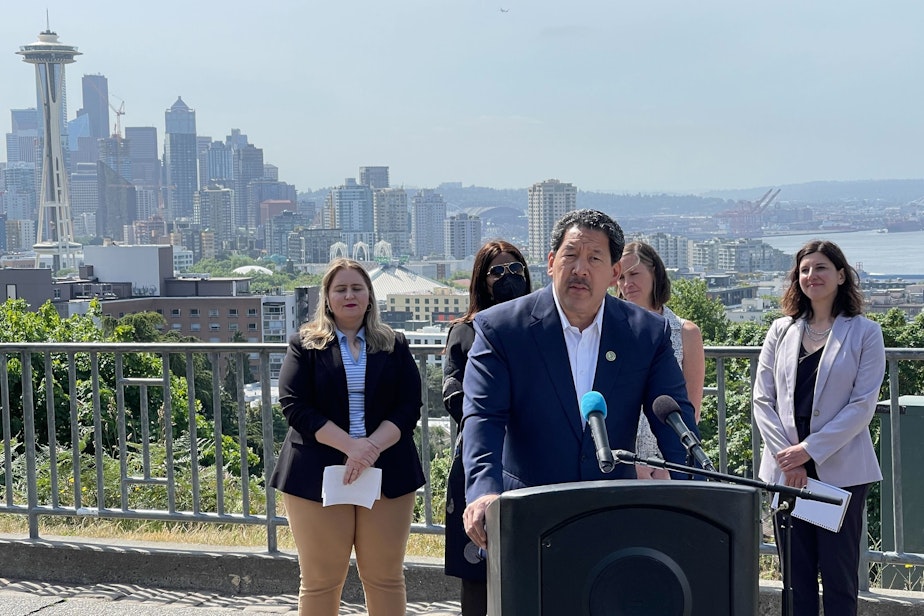Seattle mayor proposes 'doubling down' on homelessness and safety in 2024

Seattle Mayor Bruce Harrell proposed changes to the city's 2024 budget Tuesday that would increase funding to fight homelessness, pump hundreds of millions of dollars toward affordable housing, and beef up a program to increase civilian response to certain 911 calls.
He compared his approach to the budget to playing poker.
“You know that when you have a good hand and a plan that's working, you double down and that's what this budget proposal does,” Harrell said. “We need to double down on where we're seeing progress, particularly on our approach to the crisis of homelessness.”
To be clear, Harrell’s not making a brand-new budget proposal for 2024. The changes he’s suggesting would tweak the plans the city already adopted for its proposed 2024 budget.
On homelessness, Harrell said he wants to spend more on the King County Regional Homelessness Authority. That would add up to $106 million next year for the agency that has taken the lead on homelessness policy for the region.
Harrell’s proposed budget also includes hundreds of millions of dollars for affordable housing, based on the assumption that voters will back the giant, new Seattle Housing Levy that’s on the November ballot. If voters go for it, the new spending will represent a 32% increase over the 2023 budget.
Sponsored
Overall, Mayor Harrell's proposed budget changes represent an increase of 32% to $335 million from the 2024 budget adopted earlier, mostly due to that proposed increase in the housing levy.
On public safety, Harrell’s priorities include more money for the Community Assisted Response and Engagement (CARE) department. One city goal with CARE is to send a civilian response for 911, when appropriate, which could free up police to focus more on policing.
Mayor Harrell's proposed 2024 budget now goes to the Seattle City Council, where the power of the purse resides. Over the next couple of months, the council will meet, take public comment, make its own adjustments to the 2024 budget, and then vote on a final version later this fall.




